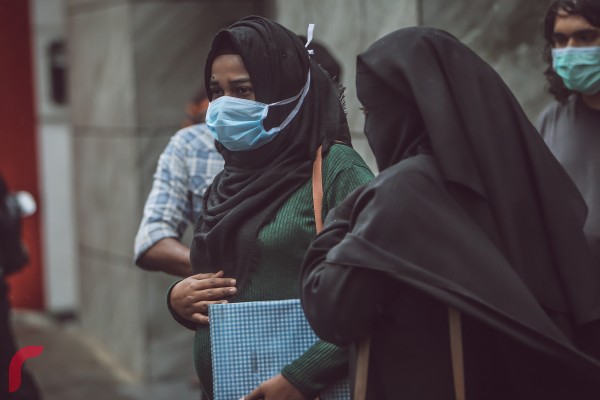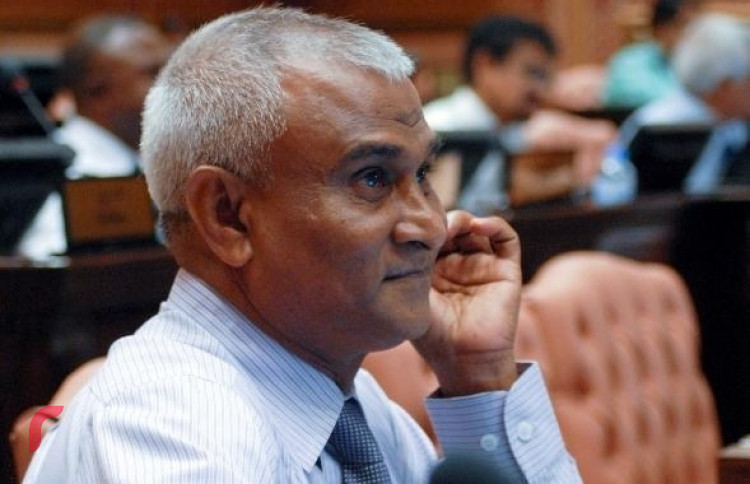Pregnant patient brought to Malé - potentially H1N1
The patient's transfer was initially scheduled for Wednesday, but not carried out due to turbulent weather in the region.


A woman standing outside the Indira Gandhi Memorial Hospital: most residents in the capital have begun wearing medical masks to limit chances of infection
A pregnant woman from Thinadhoo island of Gaafu Dhaal atoll, has been brought to Malé after doctors in the island said she may possibly be infected with the H1N1 influenza strain.
Thinadhoo Hospital’s Director Aminath Abdul Hakeem said she was brought to Malé early on Thursday morning.
The patient was reportedly treated at Fiyoari island’s health center, in the same atoll, and was scheduled to be brought to the capital previously as well. However, the Maldives National Defence Force’s (MNDF) helicopter was not in use due to Wednesday’s turbulent weather - with the Maldives Meteorological Service issuing a 'yellow alert' especially for Laamu and Gaaf Dhaal atolls.
The Health Protection Agency (HPA) had on Wednesday night released a statement that the ongoing H1N1 outbreak was still spreading fast, revealing their most recent statistic of the ongoing H1N1 outbreak.
HPA’s figures state that 82 out patients of 279 had tested positive for the strain, 31 patients more than on Monday.
The statement also said that Health Ministry is taking all the necessary measures to deter spreading.
There has been one confirmed death so far, with four flu patients in critical conditions; two have tested positive for H1N1. Doctors were even forced to deliver a pregnant patient’s five-month old fetus as well.
The Ministry itself revealed that vaccine reserves were too scarce to be administered to the entire population and discussions to acquire more were underway – but due to the current capacity, they would be limited to groups susceptible to manifesting the influenza strain more severely, like pregnant women, children, the elderly, and those with existing respiratory conditions.






